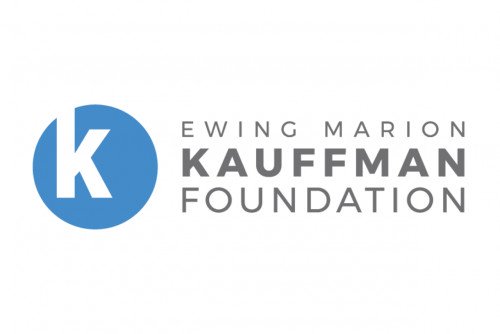
By Emily Hemingway, Executive Director, TechSTL
A newly formed partnership between St. Louis Community College, Lindenwood University, and TechSTL was announced this week as the 2022 recipient of the Ewing Marion Kauffman Foundation Inclusive Ecosystem Grant. This grant will invest in the development of more equitable and accessible data resources for Greater St. Louis. The project aims to address the collection and reporting barriers that exist around entrepreneurship, small business, and innovation for black, brown, and foreign-born residents of the 15 county bi-state region.
With the recent launch of the first tech council of St. Louis, TechSTL has been conducting research into identifying opportunities for driving the data economy, as well as mapping the gaps hindering our growth as a region.
“When it comes to data management, St. Louis still has a long way to go, but there is a lot of good change already happening. Especially in advancing DEIA efforts across our region, it is critical to invest in the partnerships and processes that generate more comprehensive data to monitor overall impact,” TechSTL Executive Director Emily Hemingway explains. “Right now, we only have a part of the full picture. Not only do we need better data, but equity is about making that data easier to access and apply by all those who would benefit from it. This project will drastically improve the way information is broadly shared so more people can hopefully turn that data into opportunity.”
The partnership includes the newly established Center for Applied Economics at Lindenwood University leading the charge on data analysis with Center Director and former Vice President and Regional Economics Advisor for the Federal Reserve Bank of St. Louis and Lindenwood Economics Professor, Dr. Howard Wall, managing the team. Dr. Wall recently completed the TechSTL IT Labor Market Report which will be released on October 12, in addition, the St. Louis Community College Workforce Development Group and home of the annual State of the St. Louis Workforce Report will serve as another bridge between current and future workforce data.
“The 2022 State of the St. Louis Workforce Report was able to highlight the recent growth of the geospatial industry and regional startups, which was a big next step in expanding data access for the region. The Inclusive Ecosystem Grant will give us the chance to explore growing additional capacities around innovation and entrepreneurship growth tracking, with an emphasis on expanding tracking in historically excluded communities,” Associate Vice Chancellor of Workforce Solutions Group at St. Louis Community College Phyllis Ellison said. “Having better data gives us an idea of what is working and what will drive regional efforts towards advancing more equitable upward mobility efforts. Data tells a story like nothing else, and we are grateful for the Kauffman Foundation for allowing us to expand the St. Louis story.”
With Lindenwood University serving as the primary project lead, the faculty and students are able to help drive this effort over the three-year grant period. By engaging campus networks to offer additional support, the team at the Center for Applied Economics will bring new academic resources to the endeavor.
“I can’t think of a more timely and relevant project to engage my team around to advance the St. Louis region. As leaders coalesce to work towards more competitive economic growth and industry expansion, having comprehensive data can be game-changing for a city like ours,” Wall shares. “This project offers a chance for Lindenwood University to help bring some new clarity to how leaders are building a future that is brighter in all corners of our community.”
The Inclusive Ecosystem Grant awarded $299,594 for the three-year project and is focused on engaging community leaders and entrepreneurs throughout the Heartland to conduct research around geographic inequality, structural racism, and questions of overall community wellness, exploring the impacts these systemic contexts have on entrepreneurial outcomes. The St. Louis project launches this fall and specifically addresses data gaps in tracking resources and impact for BIPOC communities in entrepreneurship and innovation clusters.












